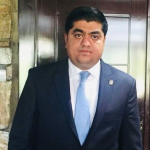- Home
- The Taliban’s Strategic Shift Toward Global Terrorism and Its Implications for International Security
The Taliban’s Strategic Shift Toward Global Terrorism and Its Implications for International Security

Event Date: December 1, 2025 - 12:00pm to 1:00pm
Location: FSS 4006, 120 University Private, University of Ottawa
Presented by CIPS
Since its formation in 1994, the Taliban have undergone a gradual yet significant transformation from a locally focused insurgent movement to an actor with broader transnational ambitions. Although the group publicly claims to confine its activities within Afghanistan, evidence indicates that it continues to provide sanctuary, facilitation, and ideological space to global jihadist organizations such as Al Qaeda, Tehrik-i-Taliban Pakistan (TTP), and other regional affiliates. This alignment reinforces a shared extremist narrative and has allowed Afghanistan to re-emerge as a permissive environment for terrorism. The Taliban’s evolving relationships with these networks threaten to undermine two decades of counterterrorism gains achieved during the Global War on Terror (GWOT) and to embolden other militant movements worldwide. This talk will explore the Taliban’s evolution from a localized insurgency to a key enabler of global terrorism. It will examine how the control of a nation-state strengthens the strategic position of the Taliban, Al Qaeda, and allied terrorist organizations. The presentation will also assess ongoing diplomatic engagement with the Taliban and analyze how such interactions may serve the group’s long-term objectives. Finally, it will outline key policy and operational measures that the international community—including Canada—can adopt to contain the growing threat posed by the Taliban and its global terrorist alliances.
Speaker:
 Ajmal Obaid Abidy is a counter-terrorism and intelligence expert with extensive experience in confronting global security threats. As Deputy Director General for Operations (DDO) at National Directorate of Security (NDS), the Afghanistan’s primary intelligence agency, he led counter-terrorism campaigns against groups including Al Qaeda, ISIS, and the Taliban, while developing deep expertise on more than 20 terrorist organizations across South and Central Asia and the Middle East. In this role, he advised senior policymakers and directed complex intelligence and security operations at the highest levels. He currently serves as a National Security Instructor at the University of Ottawa’s Professional Development Institute and holds a Master’s degree in Conflict Analysis and Management from Royal Roads University in British Columbia.
Ajmal Obaid Abidy is a counter-terrorism and intelligence expert with extensive experience in confronting global security threats. As Deputy Director General for Operations (DDO) at National Directorate of Security (NDS), the Afghanistan’s primary intelligence agency, he led counter-terrorism campaigns against groups including Al Qaeda, ISIS, and the Taliban, while developing deep expertise on more than 20 terrorist organizations across South and Central Asia and the Middle East. In this role, he advised senior policymakers and directed complex intelligence and security operations at the highest levels. He currently serves as a National Security Instructor at the University of Ottawa’s Professional Development Institute and holds a Master’s degree in Conflict Analysis and Management from Royal Roads University in British Columbia.
Chair:
 Alexandra Gheciu is a Professor at the Graduate School of Public and International Affairs (GSPIA) and the Director of CIPS.
Alexandra Gheciu is a Professor at the Graduate School of Public and International Affairs (GSPIA) and the Director of CIPS.
Social Sciences Building
Subscribe to the CIPS Newsletter
No spam, only authentic content.

